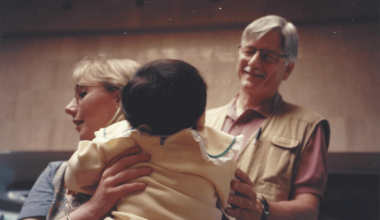Family dynamics shape who we are, offering love, support, and a sense of belonging. But what happens when these dynamics are disrupted? A broken family, caused by death, divorce, or other disruptions, can lack the harmony and structure essential for emotional well-being. The ripple effects of such disruptions often lead to emotional and psychological challenges for everyone involved.
Healthy family relationships provide a foundation of security, fostering emotional growth and resilience. However, when a family is broken, children are particularly vulnerable, facing risks like anxiety, instability, and even increased likelihood of risky behaviors. The traditional nuclear family isn’t always possible, but understanding how to heal family brokenness and foster a supportive environment can make a significant difference.
In this article, we explore the intricacies of broken family dynamics and ways to rebuild and strengthen these essential bonds. By gaining insight and employing effective strategies, we can create a nurturing environment where everyone can thrive despite the challenges of family estrangement.
Causes of Family Brokenness
There are many causes of brokenness within families. A broken family relationship can be multifaceted and often stem from more than one source. That said, common factors can include marital discord, financial strain, substance abuse, or a family member’s mental health issues. Identifying and trying to understand underlying causes can help when trying to heal fractured family relations.
Financial strain and economic pressure
Financial strain and economic pressure can be significant factors in a family’s breakdown. When families struggle to meet basic needs, the resulting stress can quickly lead to conflict. Over time, persistent financial difficulties can affect trust between partners, causing marital issues that, in some cases, lead to divorce and family estrangement.
The constant pressure to make ends meet when money is tight can also impact parenting. When parents are preoccupied or stressed over finances, it can cause emotional unavailability for their children, leading to an unstable or insecure environment.
Mental health issues and their impact
Mental health can have a profound impact on families. When someone you care about struggles with a condition like depression, anxiety, substance abuse, or bipolar disorder, it impacts the whole family. The resulting misunderstandings, emotional distance, ineffective communication, and lack of support can be devastating. Left untreated, mental health issues can cause deep wounds that ultimately lead to a breakdown in the family structure, causing a broken family relationship.
Substance abuse and addiction
Substance use and addiction can be damaging to any relationship. Addiction can cause significant emotional, financial, and psychological stress that’s difficult for families to navigate.
Addictive behaviors often lead to neglect, abuse, and loss of trust. Family members who are dealing with someone who has an addiction might feel confused about their feelings of betrayal, anger, and helplessness as they try to understand and help.
Infidelity and trust issues
Infidelity and trust issues in a relationship are common reasons for family brokenness. Infidelity breaches a fundamental trust between partners that can be near-impossible to heal from. Feelings of betrayal, hurt, and even rage can cause a ripple effect that leads to jealousy issues, suspicion, and emotional distancing between partners.
If children are involved in a situation where infidelity occurs, it can further complicate the dynamics. Children will likely experience confusion and insecurity and struggle with feeling divided in their loyalty.
Parenting differences and disagreements
Parenting can be difficult under the best circumstances. Staying on the same page with a partner takes incredible effort and determination. When parents have conflicting views about how to raise children, discipline, education, or even fundamental values, it can cause tension in the household. Children often feel caught in the middle and are confused by the mixed messages they get from differing parenting styles.
In some cases, parental differences can lead to divorce, which further exacerbates the impact of family brokenness. Although every family and situation is unique, research shows that parental separation and divorce can be damaging to children. Children living with separated or divorced parents are up to 2 times more likely to engage in risky sexual behavior.
Cultural and intergenerational conflicts
Cultural or intergenerational conflicts in families can cause misunderstandings that disrupt harmony in the home. Multicultural and intergenerational issues often revolve around lifestyle choices, careers, marriage, parenting styles, or generational trauma and differences. Unless a conscious effort is made to navigate these differences respectfully, the divide can cause resentment and alienation.
Types of Broken Families
Navigating the complexities of broken families requires understanding the unique challenges each situation presents, which can be challenging to process and heal from. This understanding is crucial for moving towards a healthier place.
Some of the most common broken family dynamics include:
- Divorced or separated families: This dynamic can become problematic due to factors like contentious custody battles, lack of cooperation between ex-partners, or inconsistent parenting styles, which can create instability and emotional distress for children.
- Single-parent families: Challenges such as financial strain, lack of support, and increased stress on the single mom or dad can lead to emotional or behavioral issues in children if the parent struggles to manage the household effectively.
- Blended families: Blended families, formed when two separate families merge, can develop complex dynamics with stepparents and stepsiblings. Challenges such as favoritism, loyalty conflicts, and difficulty integrating family traditions can cause tension and misunderstandings.
- Families with absent parents: One or both parents are physically or emotionally absent due to reasons like work, incarceration, abandonment, or death. This absence can create a void in the family structure, leading to feelings of neglect, insecurity, and emotional instability for the children.
- Conflict-ridden families: Ongoing conflict or unresolved issues cause verbal, emotional, or physical abuse or an otherwise toxic or unstable environment. Such environments can severely impact the mental and emotional well-being of all family members, often resulting in long-term psychological effects.
Signs & Effects of a Broken Family
Recognizing the signs of a broken family is the first step in healing. Broken families can take an emotional, behavioral, or social toll on everyone, including — and perhaps especially — children.
Emotional impacts of a broken family:
- Anxiety
- Depression
- Feeling abandoned
- Emotional instability
- Low self-esteem
Behavioral impacts of a broken family:
- Academic problems
- Aggression
- Withdrawing from social interactions
- Risk-taking behavior
- Difficulty in following rules
- Challenging authority
Social impacts of a broken family:
- Finding it hard to establish and maintain healthy relationships
- Socially isolating
- Trust issues
- Poor communication skills
- Issues with peers
How to Reconcile a Broken Family
When a family is broken, healing won’t necessarily be easy, but it is possible. It takes work, dedication, and understanding, though. Focusing on open communication and offering each other emotional support are essential as you learn how to fix a broken family.
Communicate openly
Communication is the cornerstone of any healthy relationship. Communicating openly ensures everyone can express their feelings and needs. It makes sharing concerns and getting empathy easier.
Seek family counseling
Family counseling can be very effective in creating a healthy dynamic. Therapy offers a structured, safe environment, where families can address and work through issues. Professional guidance can help you build healthier relationships and give you effective coping strategies for the next time your family struggles.
Establish boundaries
Boundaries help us maintain respect in our relationships. They establish limits that can help reduce misunderstandings and conflict. Setting clear family boundaries provides stability as your family heals.
“ An example of setting boundaries with family is, “I am busy this weekend with a personal project, so I won’t be able to help you with errands during that time. Let’s find another time during the week to do those tasks.”
– Talkspace therapist Bisma Anwar, LPC, LMHC
Acknowledge past hurts
Past hurt can contribute to family brokenness. Acknowledging the hurt from family drama means validating one another’s feelings and experiences. This process alone can improve empathy and understanding, which are necessary for letting go of resentment.
Pursue forgiveness
Pursuing forgiveness helps you release anger and resentment, paving the way for emotional healing. Forgiveness also helps you regain trust as you work to recreate a harmonious family environment.
Engage in shared activities
Spending time together and engaging in shared experiences can strengthen family bonds and foster positive interactions while having fun and reconnecting. Building new memories and creating a sense of unity is essential to healing.
Allow time and patience
Mending a broken family takes time and patience. It’s important to allow everyone to process pain in their own way so they can gradually start to trust again. A gentle, steady approach can ensure reconciliation is meaningful and sustainable.
Conduct regular check-ins
Regularly checking in with one another shows that you’re making an effort to reconnect and support each other. It also creates a healthy space for addressing new issues when they happen instead of letting them build up.
“In order to have effective family check-ins it is important to establish an agenda and make sure everyone has a chance to speak. It helps to set ground rules for respectful communication, engage in active listening and keep the meeting focused on the relevant issues.”
– Talkspace therapist Bisma Anwar, LPC, LMHC
Set realistic expectations
Being realistic—rather than having unhealthy expectations—can help families manage disappointment in positive ways and reduce frustration.
Create new traditions and positive experiences
Creating new traditions and having positive experiences can be instrumental in healing from past pain and hurt. Especially if resentment is part of what led to the family breakdown, replacing negative memories with joyful ones can instill a sense of renewal and hope within the family.
Start Healing with Talkspace
It’s not always easy to heal, but with the right support, you can learn how to fix a broken family. Taking the time to explore why the family breakdown occurred will let you begin taking actionable steps to rebuild trust and reconnect. From focusing on communication to seeking counseling and setting boundaries, reconnecting with your family might just be the best thing you’ve ever done.
If you want professional support, Talkspace offers convenient, affordable, individual therapy to help you navigate the challenges of broken family dynamics. Talkspace is an online therapy platform that will be with you on your healing journey as you work to restore your family harmony and well-being. Start online therapy with Talkspace today.
Sources:
- Anderson J. The impact of family structure on the health of children: Effects of divorce. Linacre Quarterly/the Linacre Quarterly. 2014;81(4):378-387. doi:10.1179/0024363914z.00000000087. https://www.ncbi.nlm.nih.gov/pmc/articles/PMC4240051/. Accessed May 22, 2024.
- D’Onofrio B, Emery R. Parental divorce or separation and children’s mental health. World Psychiatry/World Psychiatry. 2019;18(1):100-101. doi:10.1002/wps.20590. https://onlinelibrary.wiley.com/doi/10.1002/wps.20590. Accessed May 22, 2024.
Talkspace articles are written by experienced mental health-wellness contributors; they are grounded in scientific research and evidence-based practices. Articles are extensively reviewed by our team of clinical experts (therapists and psychiatrists of various specialties) to ensure content is accurate and on par with current industry standards.
Our goal at Talkspace is to provide the most up-to-date, valuable, and objective information on mental health-related topics in order to help readers make informed decisions.
Articles contain trusted third-party sources that are either directly linked to in the text or listed at the bottom to take readers directly to the source.




